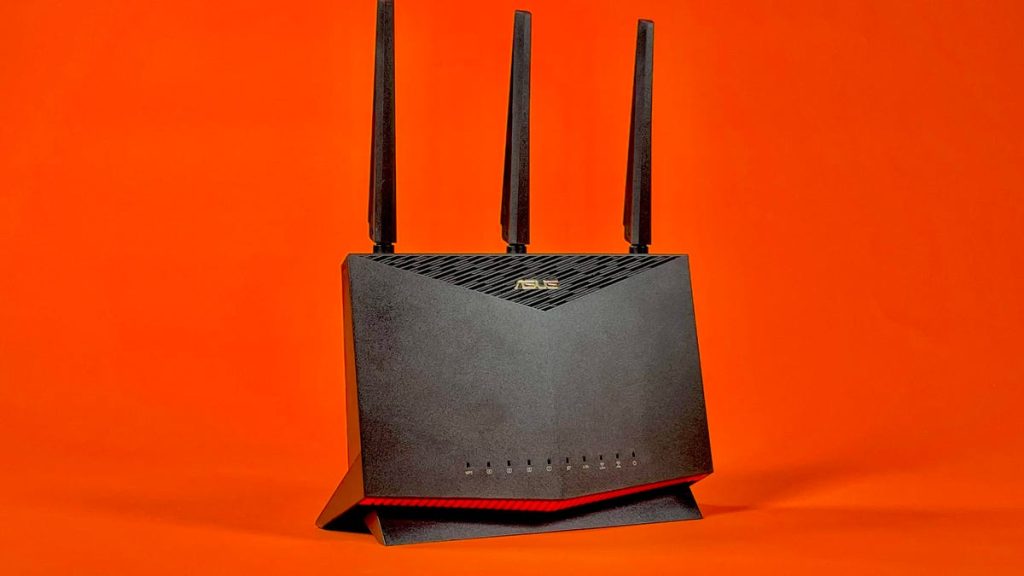An internet outage is almost never a good time, but it always seems to happen at the worst possible time.maybe you are stream media The finale of your favorite TV show is about to deliver a rare victory online or take important Call work from home Sure enough, the Internet appeared. Even the best Wi-Fi connections can go offline from time to time, and it may take some troubleshooting to get back online.
Resolving occasional service outages is usually fairly quick and easy. Here are the most common causes of internet outages and how to fix the problem, if possible. Spoiler alert: It’s not always your ISP’s fault.
(For more Wi-Fi tips, check out Why your router might be in the wrong location and How to find free Wi-Fi anywhere in the world.)
Common causes of home internet outages
Here are some of the top reasons why your internet is down – and we’ll dive into the solutions for each reason below.
1. Modem/router failure
2. Insufficient speed or equipment
3. Hackers or network issues
4. bad weather
5. ISP service outages and network congestion
Narrowing down the exact problem may require some investigation and troubleshooting. First verify that the connection issue is not specific to a single website, server, or device.
If you lose your Netflix connection in the middle of watching a show, check to see if other streaming services are still accessible and working. If so, the problem may be with Netflix and not your internet connection. If you’re having trouble connecting to other streaming services, your smart TV or streaming device may be to blame. If possible, try streaming on another device to verify if an internet outage is the culprit.
When your home internet connection goes down, it’s most likely due to a faulty modem and/or router. The solution is usually simple: Restart the device by unplugging it, waiting 10 seconds or so, then plugging it back in and allowing it to restart. Usually this will solve your interrupt problem.
When restarting your router, I recommend cutting off power by unplugging it, rather than holding down any buttons on the device itself. Doing so may prompt the device to hard reset, returning it to factory settings and erasing your Wi-Fi network settings. Of course, a reset may re-establish your Internet connection, but you’ll also need to perform the additional task of resetting your Wi-Fi.
Also, keep in mind that your device may have a battery backup. If the light on your modem or router doesn’t go out after you unplug it, check to see if there’s a battery installed somewhere and temporarily remove the battery while you restart the device.
Insufficient speed or equipment
Maybe your internet isn’t necessarily “outdated,” it just can’t keep up with what you want to do or where you do it.
Constant buffering, excessive lag, Wi-Fi “dead spots,” and other connection issues can be caused by insufficient speed, bandwidth, or Wi-Fi coverage to handle all your devices. There are two ways to deal with this situation: lower your internet expectations and use or make some upgrades.
Consider the internet speeds you need and determine whether your current plan can provide them. If your plan lacks the speed you need, upgrading to a faster plan (assuming one is available) will be your best option. Many cable and fiber internet providers offer speeds of up to 1 gigabyte per second or more, which is more than enough for the average home.
On the other hand, if you think your current plan should meet your needs, your device may be to blame. Do some speed tests around your home to get an idea of your speeds and where the Wi-Fi signal might not be as strong. Sometimes, simply relocating your router to a more efficient location can improve connection quality and eliminate or at least mitigate any dead spots.
Otherwise, you may need to invest in a better router or Wi-Fi extender to boost the Wi-Fi signal throughout your home. If you rent equipment from a provider, call and ask about getting better equipment.
Try adjusting router settings
Your router should allow you to direct connected devices to a specific Pod or extender (if you have one), and between the 2.4GHz and 5GHz bands. You’ll get a stronger signal on the 5GHz band, but only if your device is within range (5GHz range is shorter than 2.4GHz) and not too many other devices are connected to 5GHz. So if the connection quality on a particular device is weak, try switching the band on that device or moving some other device out of the band you’re using.
Use a wired connection
Using an Ethernet cable to connect directly to your modem, router, or Pod/extender will be your best option for establishing and maintaining a strong connection. If possible, use wired connections for your most bandwidth-intensive devices, such as smart TVs and game consoles. Not only does this generally provide a better, faster connection, but it also takes pressure off the Wi-Fi network.
An unlikely but still possible cause of internet outages is a compromised network. If hackers gain access to your Wi-Fi network, they could completely restrict your internet access to any or all of your devices.
If you suspect someone has unauthorized access to your network, immediately go to your router settings and recreate your Wi-Fi network with (preferably) a different network name and (definitely) a different password – with some complexity Or the randomness of the password makes it difficult for hackers to figure it out.
In addition to creating strong passwords, be sure to keep all firmware on your router and all connected devices up to date to help prevent hackers. Installing antivirus software will also help protect your device. Many ISPs offer virus and malware protection for free.
Yes, nature can interfere with your internet connection. Some internet connection types are more susceptible to internet outages during severe weather than others, but heavy rain, severe thunderstorms, and even dense cloud cover can interfere with your signal.
Satellite internet is most susceptible to weather-related internet outages, but a power outage can knock any connection type offline. Modems and routers that have battery backup may help you stay connected during a power outage, but they are useless if the outage prevents Internet service from reaching your modem in the first place.
If you have satellite internet, a rain shield, snow shield, or dish heater can help prevent power outages due to severe weather near your home. However, signal interference can occur anywhere along the path between the satellite and the dish, and heavy clouds or rainfall can affect your connection even if you’re miles away. Unfortunately, there’s nothing you can do about the internet outage in this case; you can just wait for the signal to return.
ISP outages and network congestion
Although many people have negative impressions of their internet providers, widespread ISP outages are uncommon, and outages at a single residence are almost unheard of (unless, of course, you forget to pay your bill). However, there may be issues with the provider.
If your internet is completely out and you’ve tried restarting your router, check your provider’s social media pages, official website, or sources like downdector.com for updates and outage reports. You can also call customer service, but be prepared to wait for a long time.
In this case, there’s not much you can do except confirm that there’s a problem with your ISP except wait for service to be restored. Outages are bad publicity, so rest assured that your ISP is making every effort to restore service as quickly as possible.
Outages are rare, but network congestion can be a more common problem, and while it doesn’t always completely kill your connection, it can certainly cause slowdowns. Cable, DSL and satellite internet are susceptible to network congestion, and so is 5G home internet. T-Mobile acknowledged that network congestion may cause slowdowns, saying “during congestion, home Internet customers may notice slower speeds than customers with other T-Mobile service due to data prioritization.”
Network congestion means getting home will be slower, so there’s not much you can do except wait for the congestion to clear up. However, as mentioned above, you can make the most of the speed you get by placing your router in an optimal location, adjusting your Wi-Fi settings, or using an Ethernet connection.
No internet yet?Here are other things to try
In addition to the tips listed above, there are several ways you can get back online.
The first is to use your mobile connection. If your Wi-Fi signal goes out, your phone may automatically switch to cellular service so you can use it as you would when you’re away from home. But remember, doing so will use up your mobile data.
Additionally, some phones, carriers, and plans allow you to create Wi-Fi hotspots. It may not power your home like a router, but it will let you connect some devices until your home network is restored.
Secondly, maybe it only applies to longer outages Or urgent internet needs (such as submitting a school assignment on time) seek out public Wi-Fi hotspots. Your local public library, cafe or restaurant, and many other public places may offer free Wi-Fi.
Note that using a public Wi-Fi connection is less secure than a home network, so consider using a VPN or avoid any activity involving sensitive data (passwords, banking information, taxes, etc.) on public networks.
Internet Outage FAQs
Why does my internet keep disconnecting?
There can be many factors affecting your internet connection. First, most likely there is a problem with your device. Restarting the modem/router should resolve the issue.
Other reasons why the internet continues to be unavailable include insufficient speed, network congestion, and bad weather. Your provider may be experiencing service outages, but for frequent connection outages, I would start with your router to look for the previously mentioned causes.
Can I get a partial refund for an ISP outage?
Many providers do offer compensation for prolonged or frequent outages. For example, Spectrum will “offer credits for qualifying outages of four consecutive hours or more.” Please call as soon as possible to report an outage and monitor its duration before requesting a refund.
Will a power outage affect my internet service?
Not always, but possible. When a power outage occurs, it doesn’t necessarily prevent internet service from reaching your home, but it certainly limits your ability to use the internet. Unless your modem and router have battery backup, a power outage will disable these devices and prevent you from connecting to the Internet.


